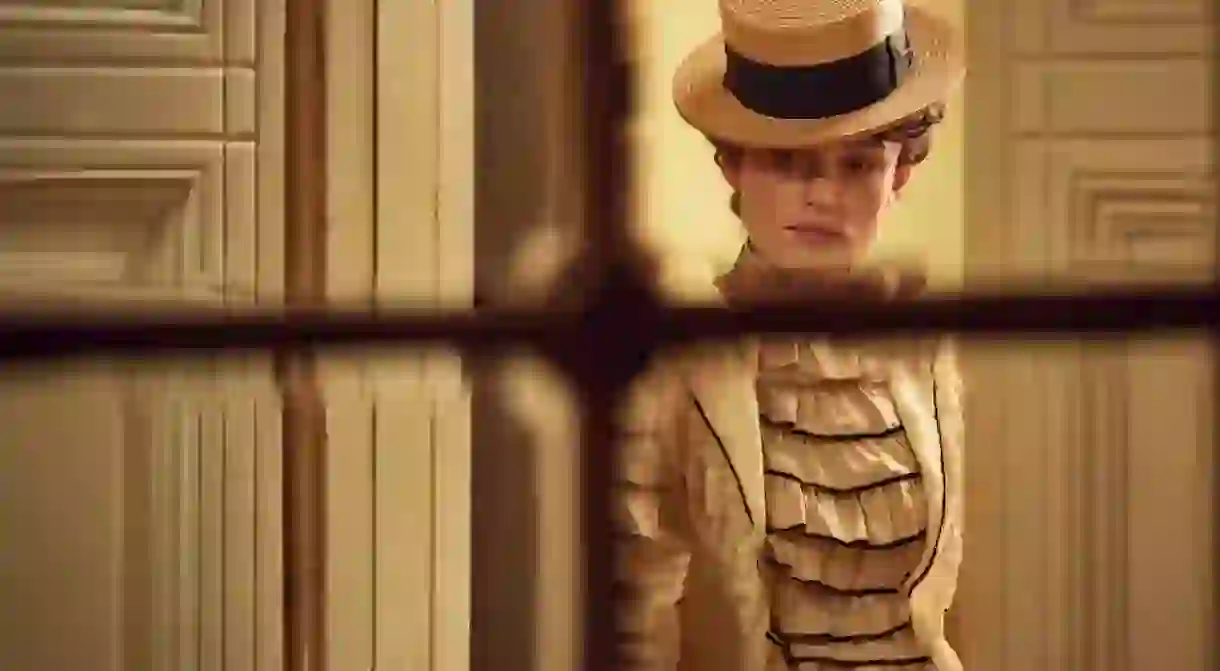Keira Knightley Dazzles as French Literary Heroine Colette

Biographical film Colette sees Keira Knightley take on the title role of famous French novelist Sidonie-Gabrielle Colette. The movie, showing at the London Film Festival, explores Colette’s extraordinary life and personal pain, all set against the backdrop of late 19th-century Paris.
Born in 1873 in the village of Saint-Sauveur-en-Puisaye, a rural part of Burgundy, Sidonie-Gabrielle Colette grew up with her mother and war-hero father in relative comfort. Then Henry Gauthier-Villars, who served alongside her father, took a shine to the village girl and the pair married before moving to Paris at the height of La Belle Époque.

Villars was already a minor celebrity, known for his articles and theatre reviews across the city. However, Villars used a collective (or ‘factory’) of writers to create his work for him, which he then published under the nom de plume ‘Willy’.
Colette focuses on these early years in Paris and the immediate aftermath of a decision taken by Villars, which eventually leads to his scandalous divorce from our female protagonist.
Colette’s life in Paris was risqué even by the standards of the ‘live and let live’ attitude of the libertines she found herself surrounded by. The general public were apparently unwilling to buy or read books by female authors, so when Villars (played by Dominic West) uncovers his wife’s talent for writing, he publishes her work under his name. At first, Colette was a willing participant, although it later transpires that she is working under duress, finding herself locked in her room until she completed her daily allocation of writing.

Her books, however, showed no sign of this coercion, and were hugely popular when they were released. Her Claudine series, which chronicled the life of a young girl in a semi-autobiographical manner, were salacious, reflecting Colette’s own bi-sexuality.
Knightley and West portray the celebrity couple to great effect. Bullish and set in his ways, Villars loves his wife but is still unwilling to give up his old life. Colette quickly grows into her new role, unflinchingly pursuing her own passions and loves.
Knightley effortlessly steps into the role of Colette, although it’s a transition that is no doubt aided by the fact that the British actress gets to use her own accent. The move to have all the major characters (bar one jarring exception) speak in the accent of the actors portraying them takes a while to get use to. The early scenes of Knightley frolicking in what is meant to be a small French village end up feeling like they are taking place in the idyllic English countryside. It’s not until we see Colette writing of her feelings of affection towards Villars in poetic French that we get a true sense of place.

An awkward menage-a-trois develops when a free-spirited American enters the scene. Georgie Raoul-Duval is played by English actress Eleanor Tomlinson, who is fine as the object of desire shared by the couple, but is hampered by an American accent that feels unnecessary when all the other actors speak in their native voices.
Knightley has proven to excel in period films, and Colette is no exception. As the final act draws in, her grit and determination to break free and have her name on her own work becomes an irresistible force. Things escalate rapidly and, by the end, we are served huge chunks of information in tiny morsels, but this works within the context of this particular story. The successes that Colette attained later in life, including dozens of best-selling books and international recognition by way of a Nobel Prize for literature nomination after a messy divorce, were born out of these early struggles.
Paris also plays a huge part in the film. The spirit and openess of the city at the dawn of the modern age add a French flavour to proceedings that might have otherwise been lacking due to the characters’ anglicised accents.
It’s Knightley who walks away with all the deserved plaudits, however. Don’t be surprised if she earns herself another Oscar nomination for this superb turn.
Colette will be screened as part of the BFI London Film Festival and on general release in UK cinemas from 25 January 2019.













